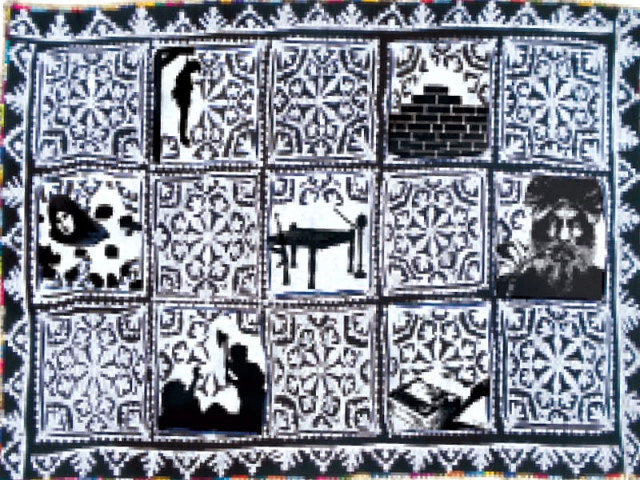Old habits die hard: As Jirga system advances, civilised practices retreat
Civil society members, nationalists and journalists are seen participating in such gatherings.

"Such gatherings are now also taking place in the urban cities in the presence of civil society members, nationalists and journalists.” DESIGN: FAIZAN DAWOOD
Speakers at the Women Action Forum’s (WAF) convention, titled ‘Impacts of Extremism on Women and Minorities’, on Sunday highlighted multifarious issues to expose the prevalence of this parallel justice system.
“We have always heard of jirgas [tribal courts] taking place in the rural areas with politico-feudal lords settling disputes pertaining to killings of innocent people by imposing monetary fines on the alleged guilty party,” said Amar Sindhu, a women rights activist working for the WAF. “But such gatherings are now also taking place in the urban cities in the presence of civil society members, nationalists and journalists.”
Sindhu was referring to the January 30, 2014, jirga which convened at Circuit House in Hyderabad to resolve the triple murder case of August 2012 in which a couple and their unborn baby were killed. The slain young couple, Ishtiaq Shaikh and Samia Detho, were buried without the performance of funeral rites near a graveyard in Tando Hyder. The bodies were exhumed on court’s orders two months later when Shaikh’s father, Ahmed Ali Shaikh, a retired journalist, raised the matter with help of his fraternity at the government level.
Detho’s family and a civil court judge were nominated in an FIR. However, tired of the 17-month long effort to get justice, the Shaikh family opted for a settlement through a jirga. Presided over by the Pakistan Peoples Party leader and former MNA Mohammed Khan Junejo, the jirga among others was attended by several journalists, one of whom became a guarantor of the decision.
A fine of Rs2.5 million each was imposed against the murder of Shaikh and the unborn baby. However, Detho’s death was not compensated as her parents maintained that she had wedded without their consent. The parents also succeeded in imposing a fine of Rs600,000 on Shaikh’s family for allowing their son to elope with their daughter.
“It is highly condemnable that the people who associate themselves with liberal and progressive values are getting influenced by feudal practices,” lamented Dr Arfana Mallah, a rights activist.
Sindhu assured that the WAF will come up with a detailed report on the jirga after its fact finding exercise. “Jirgas provide the basis for persecution and injustice towards women and marginalise people. They work as a parallel yet illegal justice system to the judiciary,” she observed.
Advocate M Prakash pointed out that honour killings are now occurring even in the Hindu community. He referred to the incident in Jacobabad when a girl, Kavita, was declared Kari and killed subsequently.
Nighat Saeed Khan of ASR Resource Centre said, “We had to decide if Pakistan has to be made an Islamic republic or a land inhabited by Muslim majority.” For her, religious extremism is the bedrock of all other manifestations of this propensity. Anis Haroon of the WAF said the women in both the urban and rural areas are prime and easy targets of all forms of extremism. “The incidents of honour killing are taking place in Karachi also and with greater frequency.”
The WAF demanded a secular state in which religious extremism has no place, protection of minority communities and agricultural reforms.
Published in The Express Tribune, February 4th, 2014.



















COMMENTS
Comments are moderated and generally will be posted if they are on-topic and not abusive.
For more information, please see our Comments FAQ